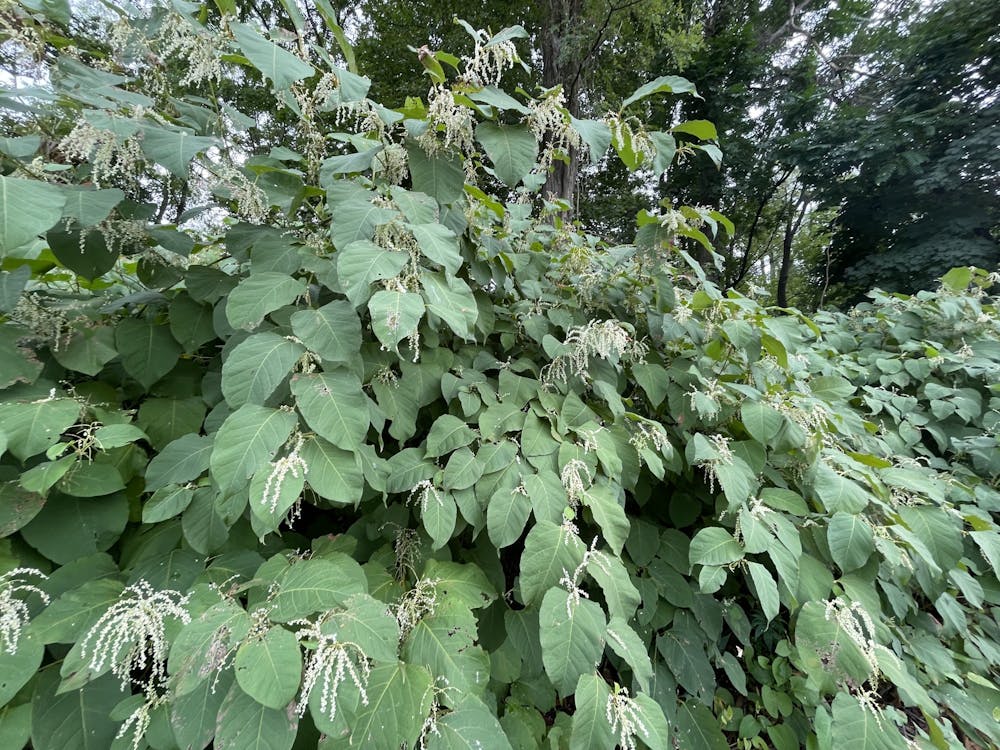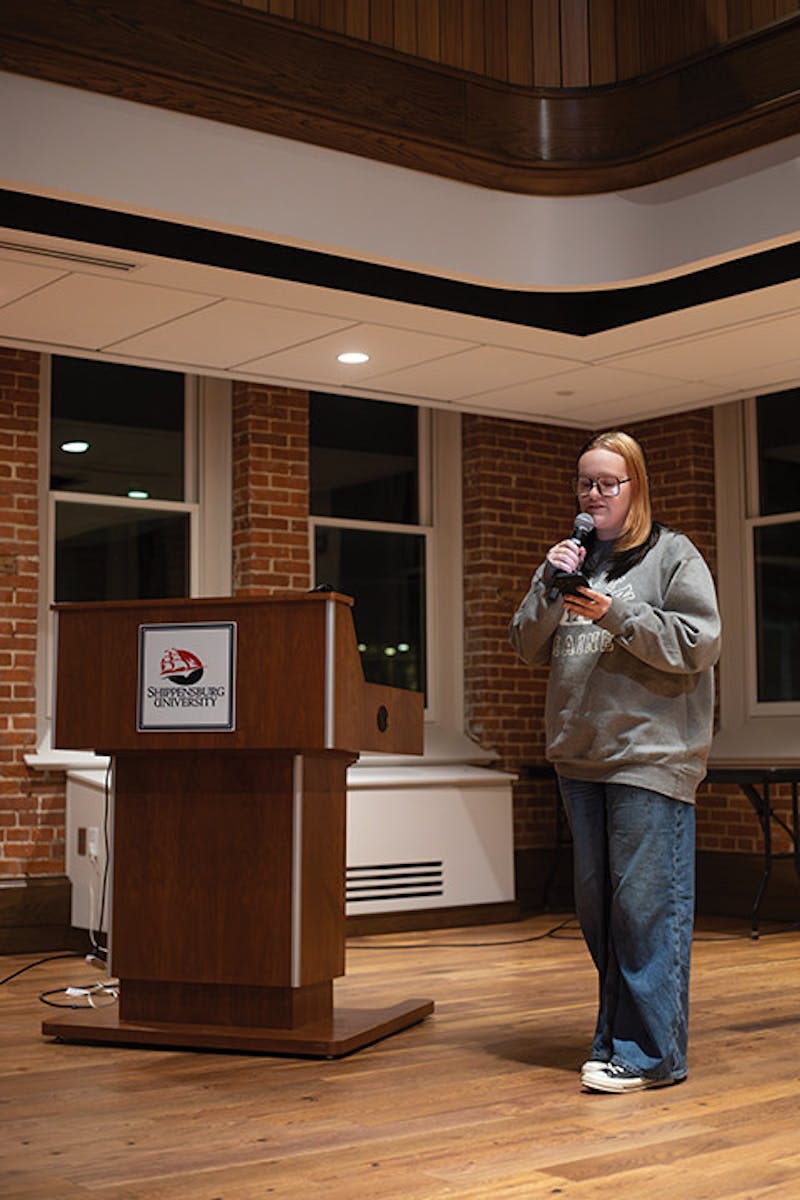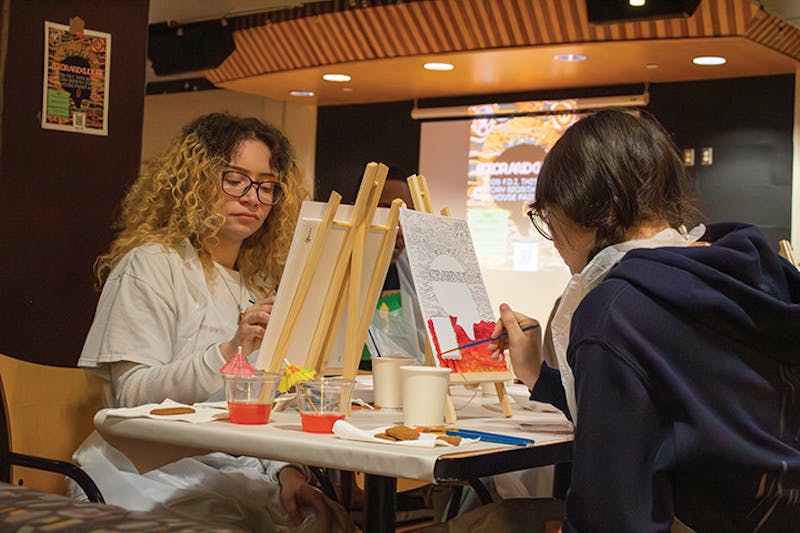Japanese knotweed, known scientifically as Fallopia japonica, can be beautiful. It has bamboo-like stems, heart-shaped leaves and tassels of white blossoms. It is also invasive and aggressive and chokes out native wildlife — and it is on campus.
Heather Sahli, a botany professor at Shippensburg University, described the school's efforts to control the plant’s growth. The plant’s rhizome, an underground stem which can produce new shoots, is problematic,
“Once it is established in an area, it is difficult to eliminate because even small fragments of the rhizome, if left in the ground, can re-sprout and continue to grow. As far as I know, the university has tried herbicides to eliminate it,” Sahli said.
“Dr. Sean Cornell had an effort to try to remove it through the use of goats, but this requires continual browsing by the goats to keep eating all the new shoots that come up,” Sahli said. So we would have to have goats on campus for quite a while to finally eradicate it.”
Invasive plants are a problem because they lack the predators found in the plant’s native environment. Japanese knotweed grows in thick, tall clusters and crowds out the plants local insects and animals need. Not only is it destructive to plants, the rhizome network of this plant is strong enough to crack concrete.
“Research by a student in my lab has found lower invertebrate abundance and diversity present on Japanese knotweed plants compared to native plant relatives, so having large areas of land dominated by this one species can greatly reduce both plant and animal diversity,” said Sahli.
Japanese knotweed is edible according to Oxidative Medicine and Cellular Longevity, a peer-reviewed medical journal, Japanese knotweed is a source of resveratrol, which has antioxidant and anti-inflammatory effects.
“I’ve never tried it but I keep meaning to. It’s supposed to be best in spring and the young shoots can be used similar to rhubarb,” Sahli said. “We should definitely do some harvesting next spring and have an ‘eat the invasive’ meal along with garlic mustard, another widespread and tasty invasive species.”
Identifying Japanese knotweed is easiest when the plant is flowering at the end of August and in early September.
Do not eat wild plants without checking with a professional that they are safe for ingestion. In Pennsylvania, people who find an invasive species should alert local authorities who may not be aware of its presence. Call 1-866-253-7189 or email badbug@pa.gov, to notify the Governor’s Invasive Species Council (GISC). The GISC is made up of seven state and non-government agencies with the goal of identifying invasive threats to Pennsylvania’s agricultural resources.





The Slate welcomes thoughtful discussion on all of our stories, but please keep comments civil and on-topic. Read our full guidelines here.